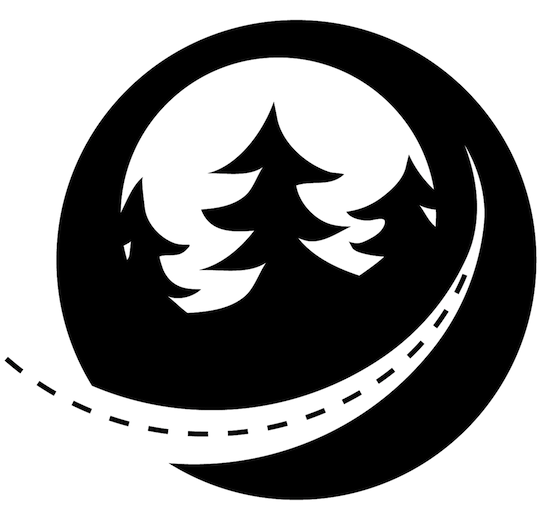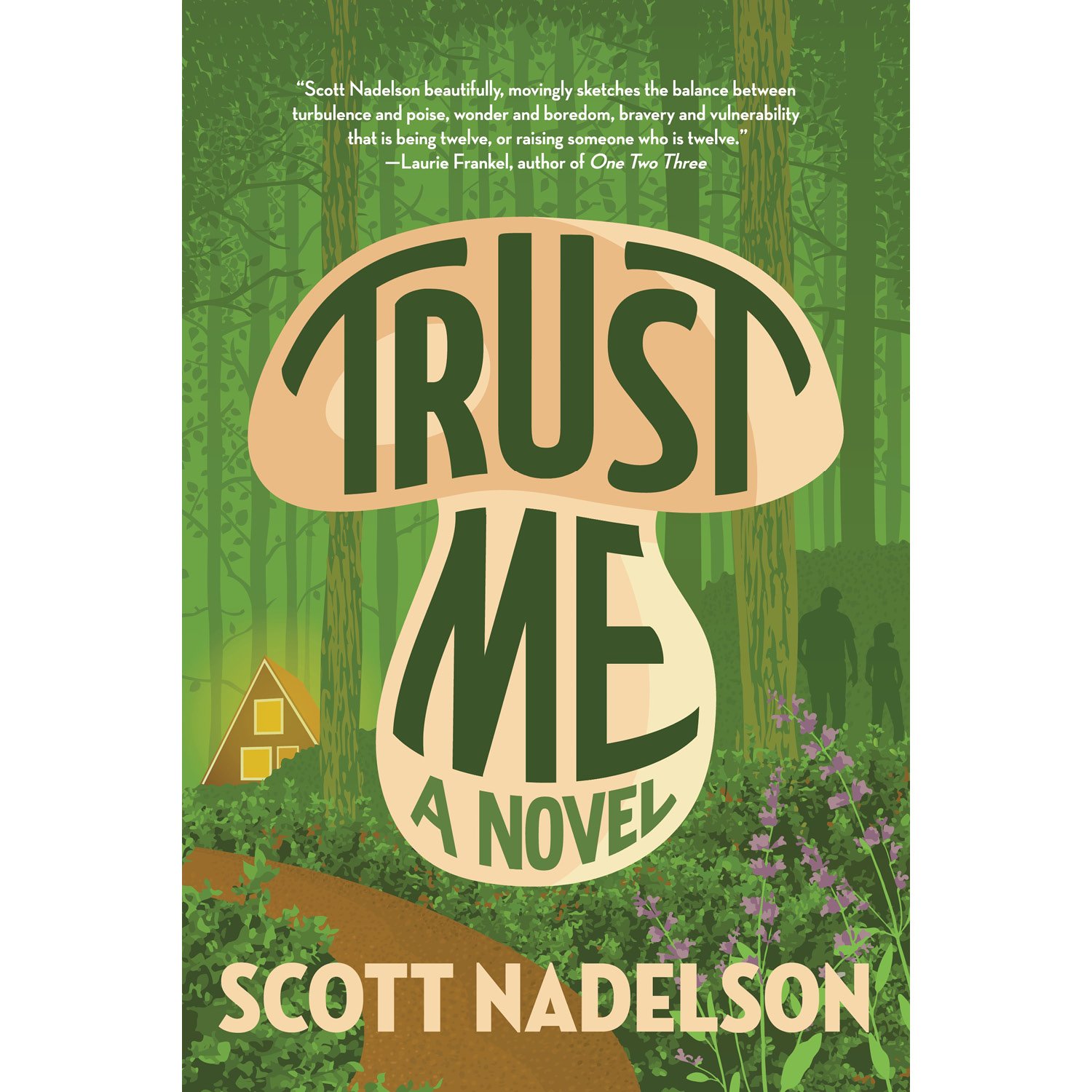Trust Me
Trust Me tells the story of a turbulent year in the life of Lewis Nelson and his daughter Skye, who spend their time together at the edge of a fragile wilderness in Western Oregon.
As a last-ditch effort to save his marriage, Lewis—an East Coast suburban Jew who has run from his roots—buys a cabin on a wild and scenic river in the Cascade foothills; after the marriage falls apart, he moves to the woods and makes the long commute every morning to Salem, the state capital, where he works a tedious government job. Skye stays with him on weekends, leaving behind her middle-school friends, her cellular service, her cat, and her mom in exchange for ancient trees and clear water and moss-covered rocks. In fifty-two vignettes—one for each week of the year—that alternate between Lewis’s perspective and Skye’s, the novel traces their days foraging for mushrooms and searching for newts, arguing over jigsaw puzzles and confronting menacing neighbors, hosting skeptical visitors and taking city jaunts, finding pleasure in small moments of wonder and coping with devastating loss. By turns comic and heartbreaking, Trust Me is a study of the uneasy bond between a hapless father and his precocious daughter, of their love for a complex and changing landscape, of the necessity and precariousness of the relationships and places we cherish most.
Trust Me tells the story of a turbulent year in the life of Lewis Nelson and his daughter Skye, who spend their time together at the edge of a fragile wilderness in Western Oregon.
As a last-ditch effort to save his marriage, Lewis—an East Coast suburban Jew who has run from his roots—buys a cabin on a wild and scenic river in the Cascade foothills; after the marriage falls apart, he moves to the woods and makes the long commute every morning to Salem, the state capital, where he works a tedious government job. Skye stays with him on weekends, leaving behind her middle-school friends, her cellular service, her cat, and her mom in exchange for ancient trees and clear water and moss-covered rocks. In fifty-two vignettes—one for each week of the year—that alternate between Lewis’s perspective and Skye’s, the novel traces their days foraging for mushrooms and searching for newts, arguing over jigsaw puzzles and confronting menacing neighbors, hosting skeptical visitors and taking city jaunts, finding pleasure in small moments of wonder and coping with devastating loss. By turns comic and heartbreaking, Trust Me is a study of the uneasy bond between a hapless father and his precocious daughter, of their love for a complex and changing landscape, of the necessity and precariousness of the relationships and places we cherish most.
Trust Me tells the story of a turbulent year in the life of Lewis Nelson and his daughter Skye, who spend their time together at the edge of a fragile wilderness in Western Oregon.
As a last-ditch effort to save his marriage, Lewis—an East Coast suburban Jew who has run from his roots—buys a cabin on a wild and scenic river in the Cascade foothills; after the marriage falls apart, he moves to the woods and makes the long commute every morning to Salem, the state capital, where he works a tedious government job. Skye stays with him on weekends, leaving behind her middle-school friends, her cellular service, her cat, and her mom in exchange for ancient trees and clear water and moss-covered rocks. In fifty-two vignettes—one for each week of the year—that alternate between Lewis’s perspective and Skye’s, the novel traces their days foraging for mushrooms and searching for newts, arguing over jigsaw puzzles and confronting menacing neighbors, hosting skeptical visitors and taking city jaunts, finding pleasure in small moments of wonder and coping with devastating loss. By turns comic and heartbreaking, Trust Me is a study of the uneasy bond between a hapless father and his precocious daughter, of their love for a complex and changing landscape, of the necessity and precariousness of the relationships and places we cherish most.


